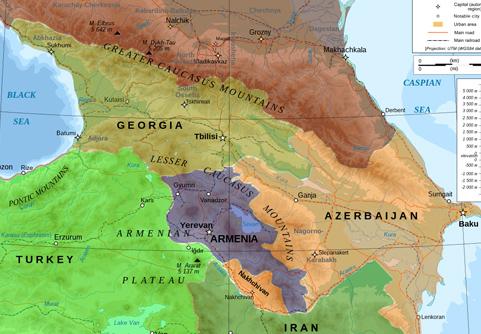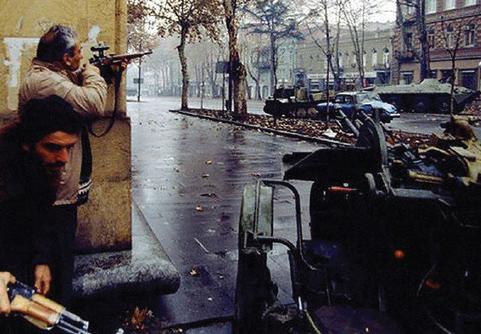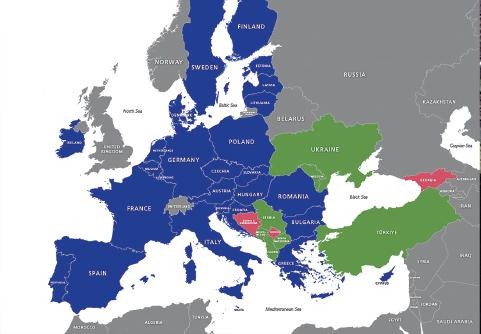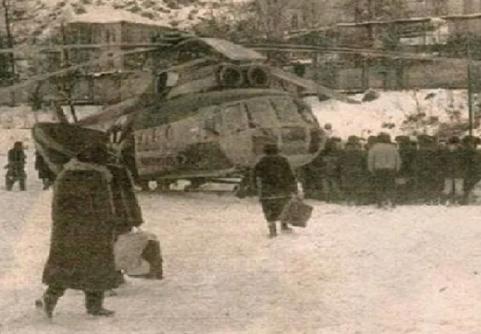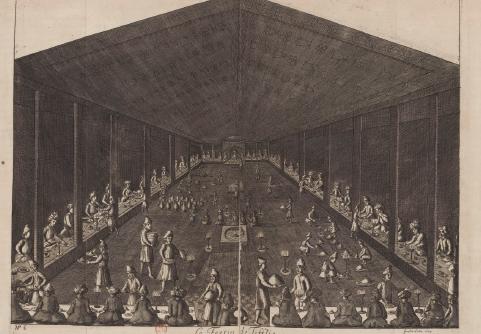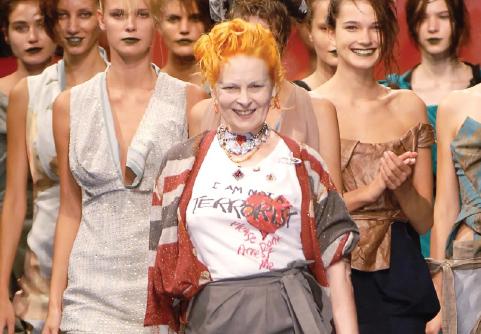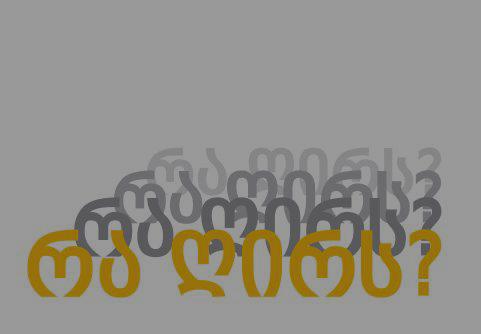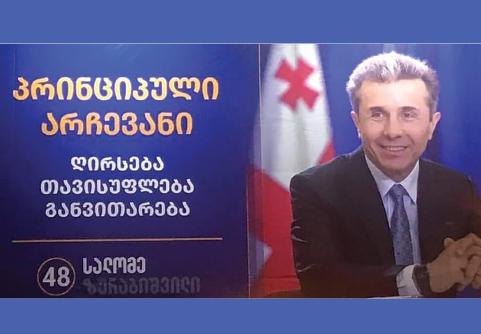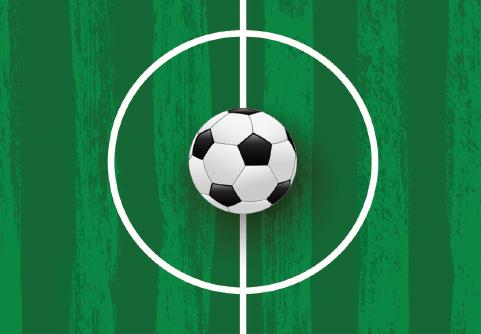
Author : Zurab Medzvelia
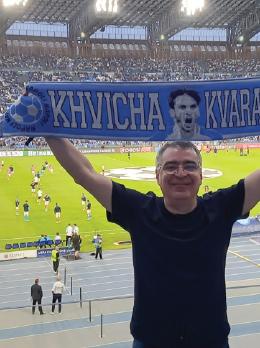
July 4, 1965
The two-time world champion Brazilian team came to the capital of the USSR for a friendly match... and a lot of Georgians headed to Moscow to see this amazing team and Pele himself. And they saw it. And they were fascinated, some even took pictures with him, some even got his autograph. And then they talked about the match, how the Brazilians won 3-0, and Pele, the king of football.
Here, you have read the above paragraph and I wonder if you have thought about one particular story.
Nowadays, even in a less developed country, an enthusiastic person can watch any football match on any TV, on any tablet or laptop, on any phone or even on any watch. And if you want to and find the possibility (I wanted to and I organized for myself a “Kvaratour” for three Napoli games in October), you can cheer for your favorite team or player anywhere in the world.
And this was 1965, the Soviet Union... Brazil and Pele became champions for the first time in 1958 and for 8 years after that the Soviet people had been reading and hearing how very cool Pele was, how very cool Pele was, what a cool goal Pele had scored... and what I am saying, now imagine for a moment: If you spent 8 years hearing and reading how cool Messi was, how very cool Messi was, how many players Messi had tricked, what a cool goal Messi had scored with his left foot or his right foot or head… only hearing and reading...
Not watching...
That is why so many Georgians went to Moscow in 1965 and that is why they talked at length about the match won 3-0 by the Brazilians and about Pele, the king of football. In the USSR, who would have been allowed to post any photo in a public place, and the exception, where they turned a blind eye to it, was in a car service center and a shoe repair shop. Well, there wasn't a shoemaker or craftsman who didn't have a photo of Pele somehow obtained on display. Stalin came second...
Then, in 1966, the USSR started televising the World Cup. In 1970, Pele and his team – considered by many to be the best in history – won for the third time. After that, the word “Pele” became synonymous with “the best” in Georgian.
The late 1960s
It all started with the fact that I wasn’t very fond of wandering around in the woods with some wolves or other wild animals, and since I couldn't read yet, I told my mother that I didn't want those stories, and asked her to read me the one with the ball depicted on it. After that she would read to me with expression about how little Uruguay beat big Brazil in 1950, how the underdog found the World Cup in 1966 and so on. Among those books were two autobiographical ones: one by Sir Stanley Matthews entitled 35 Years on the Right Wing and the other by Pele, I, Pele. Later, as an adult, I learned that thanks to this second book, millions of people in Brazil began to learn to read and write...
I didn't learn to read and write for that reason – I was told to learn and I did. And before I started reading new books, I read and re-read my favorite books already on my own. Every five years or so, I go back to those two books and for a brief moment I am carried back to those carefree times when the word “king” reminded me of a black boy playing football in that faraway Brazil.
The 1990s
I fell in love with football when I couldn't read or write, and even more so later on. So what was so surprising about becoming a football journalist? I wrote for the newspaper Sarbieli for many years. I was editor-in-chief for a while.
Anyway, I had to publish this excerpt from my CV to tell you about one of our traditions of the time – one that, at first glance, we shouldn't be proud of, because those two words, “Pele” and “died”, were heard in the newsroom during the preparation of almost every issue. Or rather, when the issue had already been finished. “If” preceded them and “not” was in the middle. In short, so as not to speak in riddles, we used to inform the editor of the completion of the issue as follows: If Pele does not die in the next few minutes, we can send it to the printers.
Sometimes tradition gives birth to a new tradition, and this gave birth to another, more brutal one: When almost everything was ready, but there was nothing worthy of the front page, the last calls would be made and we would sit at the telex waiting for some valuable news. It was all in vain, though, as then one of us would surely say, “And how is Pele, shall we enquire?”
It's better to reveal sins, and here I have revealed it. I hope you will forgive us for this black humor. Especially in those dark and cold times.
July 2, 2000
The European Championship Final: France versus Italy. Two hours before the match, I am in the press room and suddenly, out of the blue, Pele enters. He is led to a sort of podium. All the TV cameras are already there, of course. I'm there too.
This is not my first championship as a journalist. I know the rules of the press room, but suddenly I'm overwhelmed – I'm that illiterate boy again to whom his mother read I, Pele. The inaccessible and unattainable King of Football is here, in front of me, but slightly above me, so that his hands are somewhere at the level of my face.
I am no longer a journalist. I don't understand what they are asking and what he is answering. I am holding a pen in one hand and a ticket in the other. A ticket to the final of Euro 2000. And in Rotterdam, which 7 years earlier, in 1993, was my first city to visit in the free world and therefore already holds a big place in my biography. And now this historic ticket autographed by the king. Back in Tbilisi, I will show it to my mother and we will reminisce about the old days, saying what a day that has arrived, and who could have imagined it.
Not only that, but my father, who is already completely helpless – he doesn't even recognize me sometimes – can recite the Brazilian line-up of the 1970s backwards and forwards. Such thoughts are swirling in my head and I am trying hard to stick this pen in Pele's hand... He does not react... He is only looking at the cameras and doesn't put his head down... Look down... Pele! Pele! This goes on for about 2 minutes and when I realize that the interview is over and he's about to leave, frustrated, I slap him on the hand with this pen, so to say, with medium force – if it hurts, he'll look down, right? No, he doesn't. The second time, a little harder... but no – his hands can take this pain as much as his feet did during that great and wonderful career that has turned this sport into a religion... Finally, I shook his hand – clearly, one way.
If I write now that Medzvelia has beaten Pele, would that be a big exaggeration? A journalist I know asks me after a while and we laugh... What a day that has arrived?!
... I caught my father alive (as if he had given me the opportunity to enjoy football and died a month after my arrival). He recognized me and I told him the story of my “battle” with Pele. What a day that has arrived?! He laughed at first and then cried.
December 29, 2022
The king has died. Pele is dead.
My God, in any case, my father is sitting with billions of others in some heavenly stadium right now, watching in awe Pele, the King of Football, as he did on July 4, 1965.

